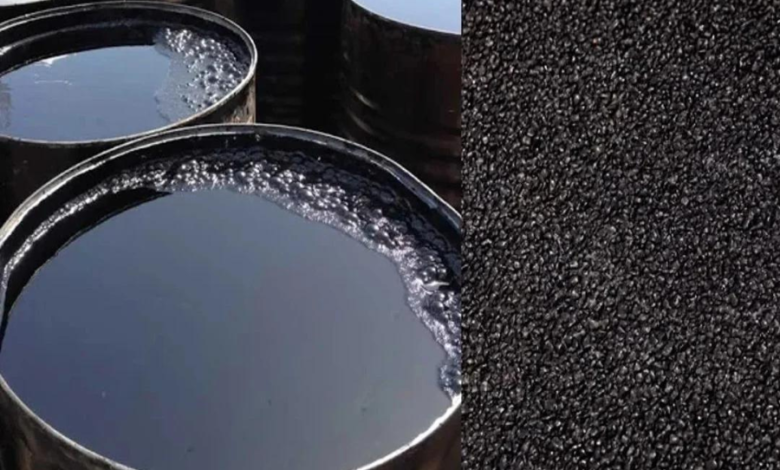Enhancing Asphalt Performance with Bitumen Boosters: A Comprehensive Guide

In the field of road construction and maintenance, the quality and longevity of asphalt are crucial. To achieve high-performance asphalt, innovative solutions such as bitumen boosters have emerged. These specialized additives are designed to improve the properties of bitumen, which is a key component in asphalt. This article delves into the world of bitumen boosters, exploring their benefits, mechanisms, applications, and considerations to help professionals make informed decisions for road construction and maintenance.
What Is a Bitumen Booster?
A bitumen booster is an advanced additive engineered to enhance the properties of bitumen, the viscous, black substance derived from petroleum that acts as a binder in asphalt. Bitumen’s primary role is to hold together aggregate materials like sand, gravel, and crushed stone, creating a solid and durable road surface.
Bitumen boosters work by modifying both the physical and chemical properties of bitumen. These modifications aim to improve the durability, flexibility, and resistance of asphalt. By addressing common issues such as rutting, cracking, and aging, bitumen boosters play a pivotal role in extending the lifespan and performance of asphalt layers.
In what way Bitumen Boosters Work
Understanding the functioning of bitumen boosters provides insight into their benefits and applications. These additives operate through several mechanisms:
a. Chemical Modifications
Bitumen boosters often contain chemical compounds that interact with bitumen to alter its properties:
- Polymer Additives: Polymers like styrene-butadiene-styrene (SBS) or ethylene-vinyl-acetate (EVA) are commonly used to enhance the elasticity and flexibility of bitumen. These polymers help reduce cracking and deformation by providing greater flexibility.
- Plasticizers: These additives improve the flow properties of bitumen, making it easier to work with and apply during the construction process.
b. Physical Enhancements
Bitumen boosters also enhance the physical characteristics of asphalt:
- Rheological Properties: By improving rheological properties, such as flow behavior and deformation resistance under varying temperatures, bitumen boosters help reduce rutting and maintain the asphalt surface’s integrity.
- Viscoelastic Behavior: Boosters improve bitumen’s viscoelastic properties, enabling it to recover from deformation and reducing permanent deformation. This contributes to extending the asphalt’s lifespan.
c. Compatibility and Integration
Bitumen boosters are formulated to be compatible with existing bitumen formulations and asphalt mixtures. They are integrated into the bitumen during the mixing process, ensuring a uniform distribution throughout the asphalt mixture.
Advantages of Bitumen Boosters
The use of bitumen boosters offers several advantages, particularly in improving the performance and durability of asphalt. Here’s a closer look at the key benefits:
a. Enhanced Resistance to Rutting
One of the most significant benefits of bitumen boosters is their ability to mitigate rutting, a common issue in asphalt pavements where depressions form in wheel paths due to repeated traffic loads. Bitumen boosters enhance bitumen’s viscosity and elasticity, helping to resist deformation and maintain a smooth surface.
- Reduced Deformation: Bitumen boosters help minimize permanent deformation under traffic loads, resulting in a smoother and more durable pavement surface.
- Extended Pavement Life: By addressing rutting, bitumen boosters contribute to a longer asphalt layer lifespan, reducing the need for frequent maintenance and repairs.
b. Improved Durability and Flexibility
Bitumen boosters enhance asphalt’s durability and flexibility, making it more resistant to cracking and other forms of deterioration:
- Crack Resistance: The increased flexibility provided by bitumen boosters helps reduce the likelihood of cracking due to temperature fluctuations and traffic stresses.
- Resistance to Aging: Bitumen boosters improve asphalt’s resistance to aging and oxidation, which can lead to brittleness and reduced performance over time.
c. Enhanced Workability
Bitumen boosters improve the workability of bitumen during mixing and application:
- Easier Handling: The improved flow properties of bitumen with boosters make it easier to handle and apply during construction.
- Better Mixing: Boosters ensure a more uniform mixing of bitumen with aggregate materials, resulting in a more consistent asphalt mixture.
d. Cost-Effectiveness
While bitumen boosters may increase the initial cost of asphalt, their benefits in durability and reduced maintenance can lead to long-term cost savings:
- Reduced Maintenance Costs: Enhanced asphalt performance translates to fewer repairs and maintenance activities, lowering overall lifecycle costs.
- Extended Service Life: By improving the lifespan of the asphalt layer, bitumen boosters contribute to better value for the investment in road construction.
Uses for Bitumen Boosters
Bitumen boosters are used across various applications in the road construction industry. Understanding these applications helps in determining their suitability for different projects:
a. Road Construction
In road construction, bitumen boosters are incorporated into asphalt mixtures to enhance performance and longevity:
- High-Traffic Roads: For roads subjected to heavy traffic loads, bitumen boosters improve resistance to rutting and deformation.
- Highway Projects: In highway construction, where durability and smoothness are essential, bitumen boosters contribute to a high-quality asphalt surface.
b. Pavement Maintenance
Bitumen boosters are also useful in pavement maintenance to address specific issues and extend the life of existing asphalt surfaces:
- Surface Treatments: Boosters can be used in surface treatments and seal coats to rejuvenate and enhance aging pavements.
- Repair Work: In repair projects, bitumen boosters improve the quality and durability of patching materials and overlays.
c. Specialized Applications
Certain specialized applications benefit from bitumen boosters:
- Cold Mix Asphalt: Boosters can enhance the performance of cold mix asphalt used for temporary repairs and low-traffic areas.
- Warm Mix Asphalt: In warm mix asphalt applications, bitumen boosters improve the mix’s properties at lower temperatures, making it easier to work with.
Considerations for Selecting Bitumen Boosters
Selecting the right bitumen booster involves several considerations to ensure optimal performance and compatibility:
a. Type of Booster
Different types of bitumen boosters offer various benefits. It’s crucial to choose a booster that aligns with the project’s specific requirements:
- Polymer-Based Boosters: Suitable for improving flexibility and resistance to deformation.
- Chemical Additives: Consider additives that enhance specific properties such as viscosity, adhesion, or aging resistance.
b. Compatibility
Ensure the bitumen booster is compatible with the existing bitumen and aggregate materials:
- Mixing Process: Verify that the booster integrates well during mixing and does not negatively impact asphalt performance.
c. Environmental Considerations
Consider the environmental impact of the bitumen booster:
- Sustainability: Look for boosters that meet environmental standards and support sustainable road construction practices.
- Emissions: Evaluate the emissions associated with the booster and its impact on air quality.
d. Cost vs. Benefit
Assess the cost of the bitumen booster relative to its benefits:
- Performance Improvements: Weigh the enhancements in performance and durability against the booster’s initial cost.
- Lifecycle Costs: Consider long-term savings in maintenance and repair costs when evaluating overall cost-effectiveness.
Examples and Case Studies
Real-world applications and case studies illustrate the effectiveness of bitumen boosters:
a. Case Study 1: High-Traffic Urban Roads
In a high-traffic urban area, bitumen boosters were used to enhance asphalt performance:
- Results: The use of bitumen boosters led to a significant reduction in rutting and surface deformation, extending the asphalt layer’s lifespan and lowering maintenance costs.
b. Case Study 2: Highway Construction
In a highway project, bitumen boosters were incorporated to improve durability:
- Results: The boosted asphalt showed better resistance to cracking and deformation, providing a smoother and longer-lasting road surface.
c. Case Study 3: Pavement Rehabilitation
In a pavement rehabilitation project, bitumen boosters were used in surface treatments:
- Results: The treated pavements exhibited enhanced flexibility and resistance to aging, improving overall performance.
Conclusion
Bitumen boosters play a vital role in enhancing asphalt performance and longevity in road construction and maintenance. By improving resistance to rutting, cracking, and aging, these additives contribute to more durable and cost-effective road surfaces. Understanding their benefits, applications, and considerations helps professionals make informed decisions, whether designing new roadways or maintaining existing pavements. Bitumen boosters offer valuable solutions for achieving high-quality and long-lasting asphalt performance, ensuring better infrastructure for the future.
FAQs About Bitumen Boosters
1. What is a bitumen booster?
A bitumen booster is an additive designed to enhance the properties of bitumen, the binder in asphalt. It improves bitumen’s durability, flexibility, and resistance to issues like rutting, cracking, and aging.
2. How do bitumen boosters work?
Bitumen boosters work through chemical and physical modifications. They often include polymers or plasticizers that improve elasticity and flow properties. Boosters enhance bitumen’s rheological and viscoelastic properties, leading to better performance in asphalt.
3. What are the benefits of using bitumen boosters?
Bitumen boosters offer several benefits:
- Enhanced resistance to rutting: Reduces permanent deformation in high-traffic areas.
- Improved durability and flexibility: Increases resistance to cracking and aging.
- Better workability: Facilitates easier handling and mixing.
- Cost-effectiveness: Leads to long-term savings through reduced maintenance and extended asphalt lifespan.
4. In which applications are bitumen boosters used?
Bitumen boosters are used in various applications, including:
- Road Construction: For high-traffic roads and highways to improve performance and longevity.
- Pavement Maintenance: In surface treatments and repairs to rejuvenate aging pavements.
- Specialized Applications: For cold mix and warm mix asphalt to enhance performance under different conditions.
5. What factors should be considered when selecting a bitumen booster?
When selecting a bitumen booster, consider:
- Type of Booster: Choose based on specific project needs (e.g., polymer-based or chemical additives).
- Compatibility: Ensure it integrates well with existing bitumen and aggregate materials.
- Environmental Considerations: Look for sustainable options and assess emissions.
- Cost vs. Benefit: Evaluate the performance improvements against the initial cost and long-term savings.
6. Are there any environmental concerns associated with bitumen boosters?
Environmental considerations include the sustainability of the booster and its impact on air quality. It is important to choose boosters that meet environmental standards and have minimal negative effects.
7. Can bitumen boosters be used in all types of asphalt?
Yes, bitumen boosters can be used in various types of asphalt, including hot mix, warm mix, and cold mix asphalt. However, it is crucial to ensure that the booster is compatible with the specific type of asphalt and application.
8. How do bitumen boosters affect the cost of asphalt?
While bitumen boosters may increase the initial cost of asphalt, they can lead to long-term cost savings through improved durability, reduced maintenance needs, and extended service life of the pavement.
9. Can you provide examples of successful bitumen booster applications?
- High-Traffic Urban Roads: Boosters reduced rutting and extended the asphalt lifespan.
- Highway Construction: Improved durability and resistance to cracking.
- Pavement Rehabilitation: Enhanced flexibility and resistance to aging.
10. Where can I learn more about bitumen boosters?
For more information, consult industry guidelines, technical datasheets from bitumen booster manufacturers, and case studies on successful applications. Engaging with professionals in road construction and asphalt maintenance can also provide valuable insights.
Get the inside scoop on celebrity fashion and red carpet looks at https://techpromagazine.com/





